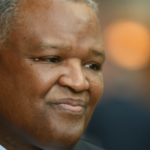- Take Action: Urge Congress to End Federal Cannabis Prohibition
- Alabama
- Alaska
- Arizona
- Arkansas
- California
- Colorado
- Connecticut
- Delaware
- District of Columbia
- Florida
- Georgia
- Hawaii
- Idaho
- Illinois
- Indiana
- Iowa
- Kansas
- Kentucky
- Louisiana
- Maine
- Maryland
- Massachusetts
- Michigan
- Minnesota
- Mississippi
- Missouri
- Montana
- Nebraska
- Nevada
- New Hampshire
- New Jersey
- New Mexico
- New York
- North Carolina
- North Dakota
- Ohio
- Oklahoma
- Oregon
- Pennsylvania
- Rhode Island
- South Carolina
- South Dakota
- Tennessee
- Texas
- Utah
- Vermont
- Virginia
- Washington
- West Virginia
- Wisconsin
- Wyoming
Voter Guide: Maryland Gubernatorial Candidates’ Views on Marijuana Policy Reform
Below are the Marijuana Policy Project’s letter grades for each of the candidates running in Maryland’s Democratic Primary for governor, which will be held on Tuesday, June 26, 2018. Click here for more information on how to register to vote.
We are updating this voter guide with additional statements candidates have made on the campaign trail (last updated April 30, 2018). We are also providing contact information for each candidate, in case you would like to reach out to the candidates to share your views on marijuana policy or ask them about theirs!
Check back again after the primary. We will publish an updated voter guide before the November general election, which will include candidates from the other parties.
The Democratic candidates are:
 Richard Madaleno — A+
Richard Madaleno — A+
Senator Madaleno supports legalization and is committed to making it a priority if he becomes governor. He also was the lead Senate sponsor of a bill to tax and regulate marijuana for adults in 2017. In response to MPP’s survey, Senator Madaleno said he supports allowing home cultivation “subject to review of the Sessions memo,” setting a more reasonable civil fine for public consumption, and expanding patient protections under the medical marijuana program.
Click here to see Sen. Madaleno's responses to MPP's survey.
Email: [email protected]
Facebook: facebook.com/richardmadaleno/
Twitter: @richmadaleno
 Alec Ross — A+
Alec Ross — A+
Mr. Ross has made marijuana legalization part of his platform. In addition to responding to MPP’s survey, he put out a detailed statement on this issue, not only supporting the legalization of marijuana but also explaining his vision for doing so. You can read it here. He says: “The social and economic benefits of taxing and regulating a legal market for marijuana are a clear win for the state and redress a legacy of failed drug policies. . . Legalization and the expungement of the records of those with past marijuana convictions are also morally the right thing to do, recognizing and reversing many years of discriminatory criminal justice policies that have disproportionately burdened minority communities. . . It is time to bring [marijuana sales in the black market] under the rule of law -- drawing a windfall of tax revenue, creating jobs, and helping thousands of Marylanders get their lives back out from under the shadow of a criminal record.” Mr. Ross said he supports home cultivation, setting a more reasonable civil fine for public consumption, and expanding patient protections under the medical marijuana program.
Click here to see Mr. Ross's responses to MPP's survey.
Email: [email protected]
Facebook: facebook.com/Alec4MD/
Twitter: twitter.com/AlecJRoss
 Ben Jealous — A
Ben Jealous — A
Mr. Jealous has explicitly stated that he supports the legalization of marijuana, for example in this tweet. He also discusses marijuana legalization as part of his campaign platform on criminal justice, saying: “I’ll legalize marijuana for adult use, effectively ending a major pipeline of nonviolent low level drug offenders into our prison
Email: [email protected]
Facebook: facebook.com/benjealous/
Twitter: twitter.com/BenJealous
 Krish Vignarajah — A
Krish Vignarajah — A
Ms. Vignarajah has publicly said she supports marijuana legalization in a recent candidate forums, and her campaign has also put out a public statement in support of legalization: “I support the legalization, regulation, and taxation of marijuana for medical and recreational purposes. . . I believe we need to treat drug use as a public health issue, not a criminal one.”
Email: [email protected]
Facebook: facebook.com/krishformaryland
Twitter: @krishformd
 Jim Shea — A
Jim Shea — A
Mr. Shea publicly said he supports marijuana legalization in a recent candidate forum. While his campaign website does not mention marijuana, he told the Washington Post through a spokesperson that: “Currently, Maryland is forgoing hundreds of millions of dollars in tax revenue from recreational marijuana legalization, while too many of our citizens — most of them African American — face criminal punishment for marijuana offenses. That has to change.”
Email: [email protected]
Facebook: facebook.com/sheaforMD/
Twitter: twitter.com/SheaforMD
Rushern Baker — C+
 Mr. Baker did not fill out our survey. He failed to express support for legalization at a February candidate forum when other candidates did so and told the Washington Post, “I don’t [support legalization] at this time.” In April, he expressed a willingness to consider it in the future and listed several “questions you have to deal with before the legalization,” including “who gets the economic benefit” and where stores can locate. During a June 14 gubernatorial debate, Baker said he supports legalization with reservations. According to the Baltimore Sun, “He said he first would want to see new laws such as allowing for the expungement of nonviolent marijuana-related convictions. He also cautioned that under the most optimistic scenario, the revenue from taxing cannabis sales would not start flowing for three or four years.” (Some states have seen revenue come in far quicker. In Nevada, voters enacted a marijuana regulation law in November 2016 and early sales — and revenue — began eight months later.)
Mr. Baker did not fill out our survey. He failed to express support for legalization at a February candidate forum when other candidates did so and told the Washington Post, “I don’t [support legalization] at this time.” In April, he expressed a willingness to consider it in the future and listed several “questions you have to deal with before the legalization,” including “who gets the economic benefit” and where stores can locate. During a June 14 gubernatorial debate, Baker said he supports legalization with reservations. According to the Baltimore Sun, “He said he first would want to see new laws such as allowing for the expungement of nonviolent marijuana-related convictions. He also cautioned that under the most optimistic scenario, the revenue from taxing cannabis sales would not start flowing for three or four years.” (Some states have seen revenue come in far quicker. In Nevada, voters enacted a marijuana regulation law in November 2016 and early sales — and revenue — began eight months later.)
Email: [email protected]
Facebook: facebook.com/BakerforGovernor
Twitter: @BakerforGovernor
Ralph Jaffe — D
Jaffe — D
We were unable to reach Mr. Jaffe or find information on his views on marijuana policy reform, but he stated he “disagrees 100%” with legalizing marijuana, though he says he supports medical marijuana.
Email: [email protected]
Website: www.fedupwithcrookedpolitics.com
James Jones — Unknown
We were unable to reach Mr. Jones or find information on his views on marijuana policy reform.
Email: [email protected]
Alec Ross
Supports legalization?
Yes.
Candidate's level of support?
Comments:
It is high time for Maryland to adopt progressive marijuana policies. The social and economic benefits of taxing and regulating a legal market for marijuana are a clear win for the state and redress a legacy of failed drug policies. That is why I have already released comprehensive policy outlining how we would go about legalizing and regulating recreational marijuana in Maryland. Legalization and the expungement of the records of those with past marijuana convictions are also morally the right thing to do, recognizing and reversing many years of discriminatory criminal justice policies that have disproportionately burdened minority communities. The plan I outline follows a tried and tested path toward legalization that has worked in other states and won the support of many legislators in Annapolis -- not to mention a majority of their constituents. Marijuana must no longer be a scourge in our communities that sustains a black market of criminal enterprise nearly $800 million in size. It is time to bring it all under the rule of law -- drawing a windfall of tax revenue, creating jobs, and helping thousands of Marylanders get their lives back out from under the shadow of a criminal record.
Supports home cultivation?
Comments:
The current penalty for public consumption of marijuana in Maryland is a civil fine of up to $500. Do you believe this penalty is:
Too harsh: the fine is too high, particularly for low-income people, and these penalties will almost certainly be disparately enforced against the low-income and people of color.
Comments:
The rollout of Maryland’s medical marijuana program has been one of the slowest in the nation and fraught with controversy due to delays, a lack of diversity in the ownership of cultivators, and lawsuits over the Commission’s handling of the licensing process. As governor, what if anything would you do to address these issues (check all that apply):
![]() I would change the structure of the Commission and ensure that all commissioners are committed to making medical cannabis accessible to any Maryland patients who could benefit from it.
I would change the structure of the Commission and ensure that all commissioners are committed to making medical cannabis accessible to any Maryland patients who could benefit from it.
![]() I would ensure that the Commission is fully funded and staffed, and works to complete the licensing process as quickly as possible so that patients do not face any more unnecessary delays in getting access to their medicine.
I would ensure that the Commission is fully funded and staffed, and works to complete the licensing process as quickly as possible so that patients do not face any more unnecessary delays in getting access to their medicine.
![]() I would encourage communities and local governments to approve dispensaries, which should be treated similarly to pharmacies.
I would encourage communities and local governments to approve dispensaries, which should be treated similarly to pharmacies.
![]() I would vocally support and sign a bill that would increase diversity and inclusion in the medical cannabis industry.
I would vocally support and sign a bill that would increase diversity and inclusion in the medical cannabis industry.
![]() I would work to ensure that the mistakes of the medical marijuana rollout are not repeated when Maryland legalizes cannabis for adult use.
I would work to ensure that the mistakes of the medical marijuana rollout are not repeated when Maryland legalizes cannabis for adult use.
Comments:
The process to legalize medical marijuana in Maryland was difficult, and implementation has seen its shares of challenges. This experience should not deter us from moving forward with full legalization, taxation, and regulation of marijuana for recreational use. We should learn from the mistakes made in setting up the Medical Cannabis Commission and its review process. We will be able to better evaluate costs for processing licenses and establishing new programs. We can predict demand, anticipate bureaucratic bottlenecks, and benefit from state employees that have knowledge and experience with these issues. Finally, we can correct the problems of diversity and inclusion by taking additional steps to ensure fair and representative access to new markets. I would work closely with legislators and policy experts like the MPP to ensure that we don’t make the same mistakes again in Maryland and that we right them as quickly as possibly so our marijuana industry can flourish statewide.
As governor, I would support adding the following additional protections for patients or workers that are not currently included in Maryland’s medical cannabis program. (Check all that apply.)
![]() Patients who use medical cannabis could not be discharged from employment because they use cannabis medically if their ability to work is not impaired.
Patients who use medical cannabis could not be discharged from employment because they use cannabis medically if their ability to work is not impaired.
![]() Patients who do not want to smoke or vaporize medical cannabis should be able to obtain and use legally produced edible forms of medical cannabis.
Patients who do not want to smoke or vaporize medical cannabis should be able to obtain and use legally produced edible forms of medical cannabis.
![]() Individuals who have prior marijuana convictions should not be barred from working in the medical cannabis industry, particularly if they have had a clean record for several years since they completed their sentences.
Individuals who have prior marijuana convictions should not be barred from working in the medical cannabis industry, particularly if they have had a clean record for several years since they completed their sentences.
![]() Patients who are registered medical cannabis patients in other states and are visiting or temporarily residing in Maryland should be able to access Maryland’s dispensaries, just like they could fill their prescriptions at a Maryland pharmacy.
Patients who are registered medical cannabis patients in other states and are visiting or temporarily residing in Maryland should be able to access Maryland’s dispensaries, just like they could fill their prescriptions at a Maryland pharmacy.
Comments:
Richard Madaleno
Supports legalization?
Yes.
Candidate's level of support?
I will champion this issue and make it one of my priorities as governor.
Comments:
In the 2017 legislative session, I sponsored Senate Bills 927 and 928 which would legalize sales and possession of cannabis under specified circumstances and also impose a 9% excise tax on such sales (excluding sales of medical marijuana from such tax) with half of the revenues to be earmarked for community schools, and the remainder for opioid prevention and treatment measures, workforce development, and public education and training regarding driving under the influence. This use of revenues would not only fund important public policies, but would also channel revenues from these sales to communities disproportionately impacted by the “war” on drugs. As a result of my leadership in efforts to legalize marijuana in Maryland, I received the Vanguard NORML award in 2017 from the Maryland state chapter of the National Organization for Reform of Marijuana Laws (NORML). In the 2018 legislative session, we will need to review the impacts of the recent memo issued by Attorney General Sessions regarding federal enforcement of marijuana laws to determine the best approach to achieve our goals.
Supports home cultivation?
Yes.
Comments:
Yes I do support, subject to review of the Sessions memo and the appropriate response to this new development. The bill I sponsored in 2017 provides for legal home cultivation of up to six cannabis plants.
The current penalty for public consumption of marijuana in Maryland is a civil fine of up to $500. Do you believe this penalty is:
Too harsh: the fine is too high, particularly for low-income people, and these penalties will almost certainly be disparately enforced against the low-income and people of color.
Comments:
The bill I sponsored last session proposed a civil penalty of up to a $100 fine for violations of the prohibition against use of cannabis in public spaces. This proposed maximum for a civil penalty is more proportionate and reasonable than the current fine.
The rollout of Maryland’s medical marijuana program has been one of the slowest in the nation and fraught with controversy due to delays, a lack of diversity in the ownership of cultivators, and lawsuits over the Commission’s handling of the licensing process. As governor, what if anything would you do to address these issues (check all that apply):
![]() I would change the structure of the Commission and ensure that all commissioners are committed to making medical cannabis accessible to any Maryland patients who could benefit from it.
I would change the structure of the Commission and ensure that all commissioners are committed to making medical cannabis accessible to any Maryland patients who could benefit from it.
![]() I would ensure that the Commission is fully funded and staffed, and works to complete the licensing process as quickly as possible so that patients do not face any more unnecessary delays in getting access to their medicine.
I would ensure that the Commission is fully funded and staffed, and works to complete the licensing process as quickly as possible so that patients do not face any more unnecessary delays in getting access to their medicine.
![]() I would encourage communities and local governments to approve dispensaries, which should be treated similarly to pharmacies.
I would encourage communities and local governments to approve dispensaries, which should be treated similarly to pharmacies.
![]() I would vocally support and sign a bill that would increase diversity and inclusion in the medical cannabis industry.
I would vocally support and sign a bill that would increase diversity and inclusion in the medical cannabis industry.
![]() I would work to ensure that the mistakes of the medical marijuana rollout are not repeated when Maryland legalizes cannabis for adult use.
I would work to ensure that the mistakes of the medical marijuana rollout are not repeated when Maryland legalizes cannabis for adult use.
Comments:
As Governor, I would appoint Commissioners who are committed to full realization of the goals of Maryland’s medical marijuana laws and who are qualified to administer the program in an effective manner. With appropriate staffing and funding and a commitment to diversity, it should be possible to run an effective program that makes medical marijuana available for all patients who could benefit from it. I support the Natalie M. LaPrade Medical Cannabis Commission Reform Act, which is expected to be introduced in the Maryland legislature this year and which proposes to change the structure of the Commission.
As governor, I would support adding the following additional protections for patients or workers that are not currently included in Maryland’s medical cannabis program. (Check all that apply.)
![]() Patients who use medical cannabis could not be discharged from employment because they use cannabis medically if their ability to work is not impaired.
Patients who use medical cannabis could not be discharged from employment because they use cannabis medically if their ability to work is not impaired.
![]() Patients who do not want to smoke or vaporize medical cannabis should be able to obtain and use legally produced edible forms of medical cannabis.
Patients who do not want to smoke or vaporize medical cannabis should be able to obtain and use legally produced edible forms of medical cannabis.
![]() Individuals who have prior marijuana convictions should not be barred from working in the medical cannabis industry, particularly if they have had a clean record for several years since they completed their sentences.
Individuals who have prior marijuana convictions should not be barred from working in the medical cannabis industry, particularly if they have had a clean record for several years since they completed their sentences.
![]() Patients who are registered medical cannabis patients in other states and are visiting or temporarily residing in Maryland should be able to access Maryland’s dispensaries, just like they could fill their prescriptions at a Maryland pharmacy.
Patients who are registered medical cannabis patients in other states and are visiting or temporarily residing in Maryland should be able to access Maryland’s dispensaries, just like they could fill their prescriptions at a Maryland pharmacy.
Comments:
It would be appropriate to enact a statute that would provide that a prior conviction for the possession or sale of marijuana is not considered to be the sole ground for the denial of a license. Such a law should also provide that conviction for any controlled substance felony subsequent to licensure shall be grounds for revocation of a license or denial of renewal of a license.

